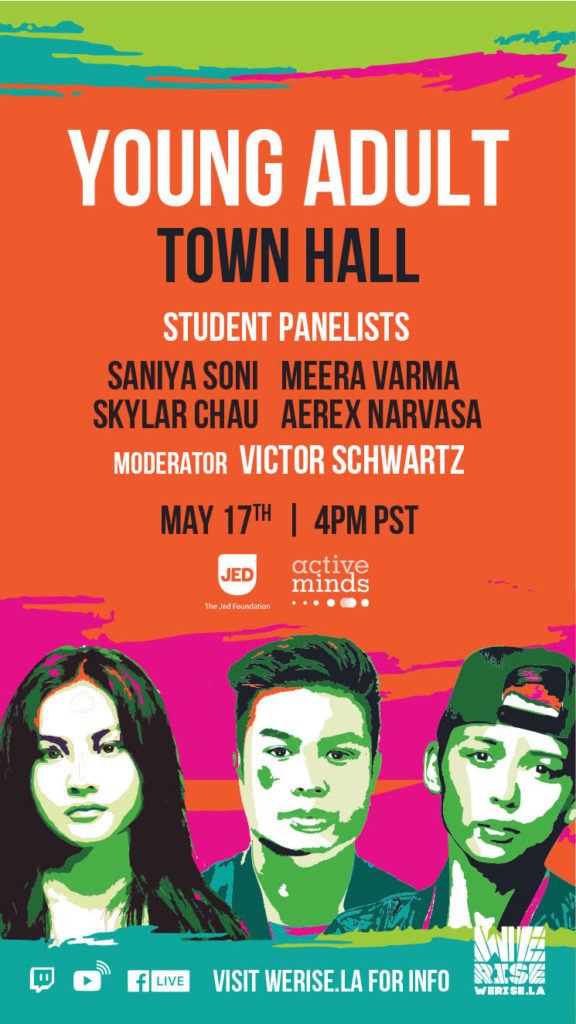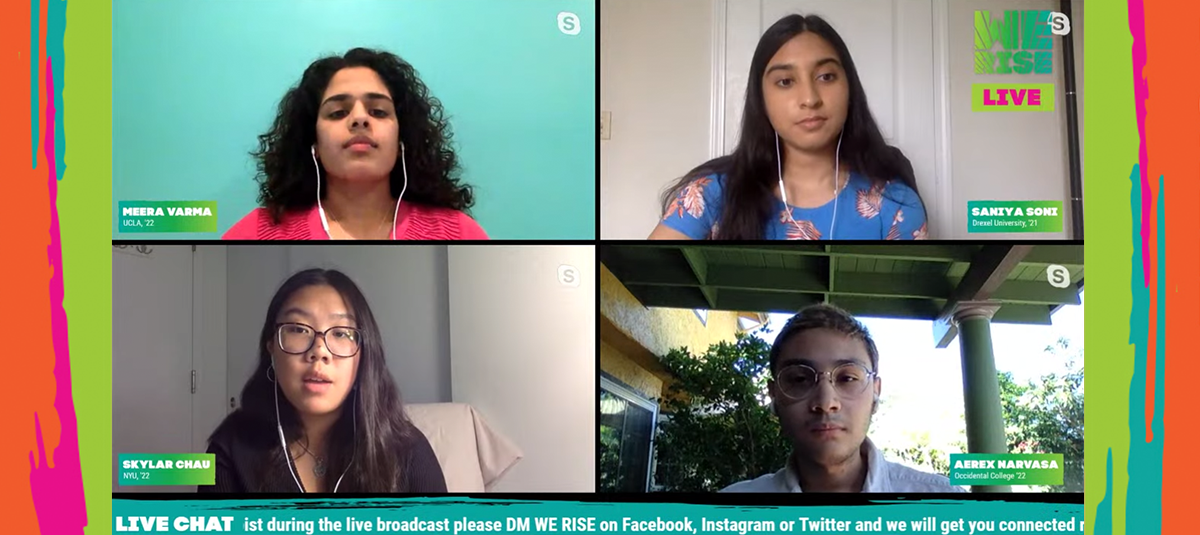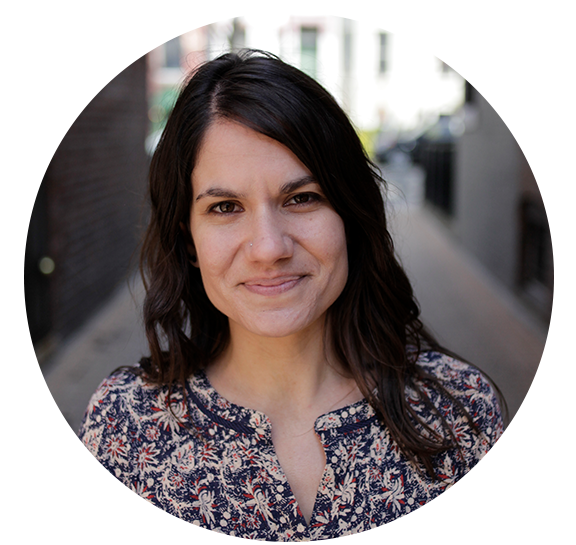This past weekend a panel of four young adults convened to discuss the impact of the COVID-19 pandemic on their mental health and what they are hearing among their peers. Organized by We Rise, a Los Angeles-based mental health advocacy organization, this event was intended to elevate the voices and perspectives of young adults as they navigate these tumultuous times.
Two of the panelists – Meera Varma (UCLA ‘22) and Aerex Narvasa (Occidental College ‘22) – are leaders of their campus’ Active Minds chapters. I found myself struck by their advice and so grateful to hear their perspectives and suggestions. Read on to learn the three central themes of the discussion:

- Balance and Self-Care
Several of the students expressed the real challenge to practice self-care and balance with an unknown future and so much that feels out of control. Working to prioritize mental health with pressures around accomplishment and achievement is a pronounced experience of these past few months, according to these young adults – they find themselves wondering if and how they can continue down the paths they’ve worked so hard to lay for their futures with the pandemic in their way. When they find themselves feeling overwhelmed by the sense of helplessness, they work on acceptance and focus on what they can control through this time of chaos.
Meera shared one of her tools: “Being my own advocate is really important for me. When I’m having a challenging time, I try to reach out to my mom or my brother and let them know that I don’t need advice, I just need them to spend time with me.” This is a sentiment affirmed by the recent Active Minds study that surveyed over 3,000 young adults – most are spending a great deal of time with their parents while sheltered-in-place. They report the best thing their parents can do to support their mental health is to spend time together.
- Virtual Connection
Meera reflected on the importance and challenges of virtual connectivity. Where connection with friends was previously a given, built into their day-to-day lives, now there’s a need to be intentional and consistent about being in touch, which isn’t always easy. “I miss my friends every single day. Some days I reach out to them and some days I don’t feel totally mentally up for [virtually connecting]. It helps me to remember that I’m not alone in that.”
Letting someone know you are here for them and hearing they are here for you can be incredibly uplifting through our days of sheltering in place. The panelists expressed that sometimes they feel a sense of being a burden or asking too much. Meera helps mitigate that feeling by asking herself what it feels like when someone reaches out to her to let her know that they are struggling. “How would it feel if someone reached out to me? I would feel honored! Know that you are not a burden. People want to be there for you.”
- Seeking Support
Aerex explained that he’s working to raise awareness about how and where to seek mental health support. He’s noticed that misconceptions and lack of understanding of what services are available to students have been exacerbated by our current circumstances. “A barrier to seeking mental health services is a misconception of what is currently available to students. Partially that’s to do with how that’s advertised on campus, especially in the time of this pandemic. We need to make sure that students know how to access help, even though it’s all online.”
This sentiment is supported by the student study conducted by Active Minds that demonstrated that more than half of young adults do not know where to go if they need support right now.
Aerex also expressed how, when he reached college, he had to reconcile his personal and culturally reinforced stigma around asking for help when he needed it. Not only did he learn that asking for help isn’t about failure, it’s about strength and that people want to be there for you. “When I got to college, and now especially during this pandemic, I’ve learned that asking for help is not a sign of failure or overcommitment and that most people, including professors, are willing to help.” He further elaborated that “this isn’t the time to be apathetic or put off our mental health, no matter how bad I feel or how much I have to do. Reach out to friends, family, professors when you need time, don’t put it off.”
In closing, Meera said it best. “You’re not in this alone. What you’re feeling is 100% valid. Take it one day at a time. It starts with your mental health.” If you are struggling, reach out to someone around you, the Crisis Text Line, or the National Suicide Prevention Lifeline. Active Minds is #HereForYou.
________
Active Minds is a proud partner of Each Mind Matters: California’s Mental Health Movement, through CalMHSA – the California Mental Health Services Authority. This We Rise event and many others are made possible by funding from California counties through the Mental Health Services Act. Connect with Each Mind Matters and learn more about innovative mental health prevention and early intervention work happening throughout the state.





